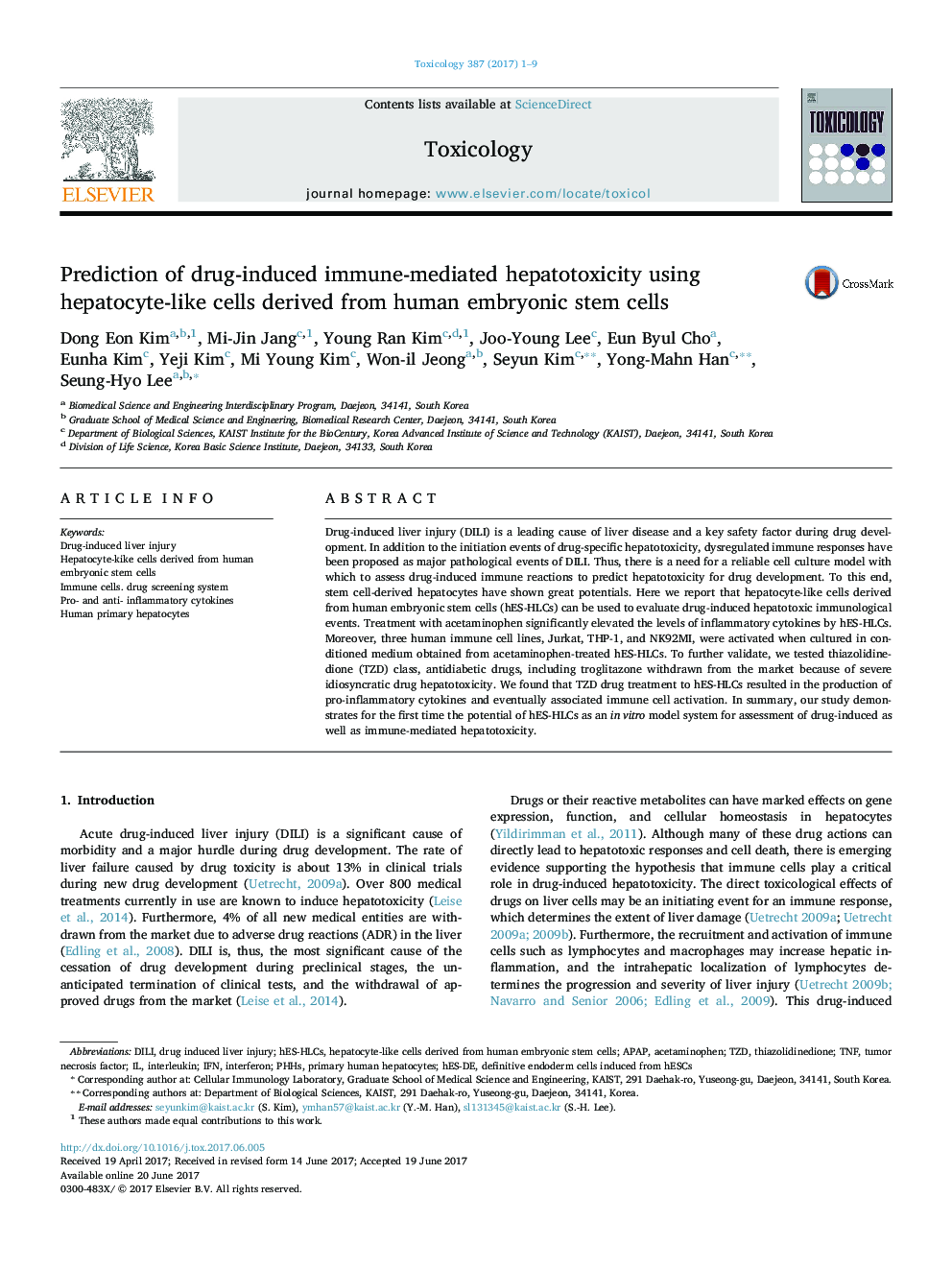| Article ID | Journal | Published Year | Pages | File Type |
|---|---|---|---|---|
| 5561741 | Toxicology | 2017 | 9 Pages |
â¢Generation and characterization of hES-HLCs for evaluation of drug-induced immune cell-mediated hepatotoxicity.â¢The secretion of inflammatory cytokines is highly enhanced from APAP-treated hES-HLCs.â¢Immune cells are activated and produce pro-inflammatory cytokines by conditioned medium from hES-HLCs cultured with APAP.â¢Hepatotoxic results in hES-HLCs are consistent with those of primary human hepatocytes.â¢Hepatotoxic drugs such as TZD, and non-hepatotoxic drugs such as aspirin and metformin, are also validated with our drug screening system.
Drug-induced liver injury (DILI) is a leading cause of liver disease and a key safety factor during drug development. In addition to the initiation events of drug-specific hepatotoxicity, dysregulated immune responses have been proposed as major pathological events of DILI. Thus, there is a need for a reliable cell culture model with which to assess drug-induced immune reactions to predict hepatotoxicity for drug development. To this end, stem cell-derived hepatocytes have shown great potentials. Here we report that hepatocyte-like cells derived from human embryonic stem cells (hES-HLCs) can be used to evaluate drug-induced hepatotoxic immunological events. Treatment with acetaminophen significantly elevated the levels of inflammatory cytokines by hES-HLCs. Moreover, three human immune cell lines, Jurkat, THP-1, and NK92MI, were activated when cultured in conditioned medium obtained from acetaminophen-treated hES-HLCs. To further validate, we tested thiazolidinedione (TZD) class, antidiabetic drugs, including troglitazone withdrawn from the market because of severe idiosyncratic drug hepatotoxicity. We found that TZD drug treatment to hES-HLCs resulted in the production of pro-inflammatory cytokines and eventually associated immune cell activation. In summary, our study demonstrates for the first time the potential of hES-HLCs as an in vitro model system for assessment of drug-induced as well as immune-mediated hepatotoxicity.
